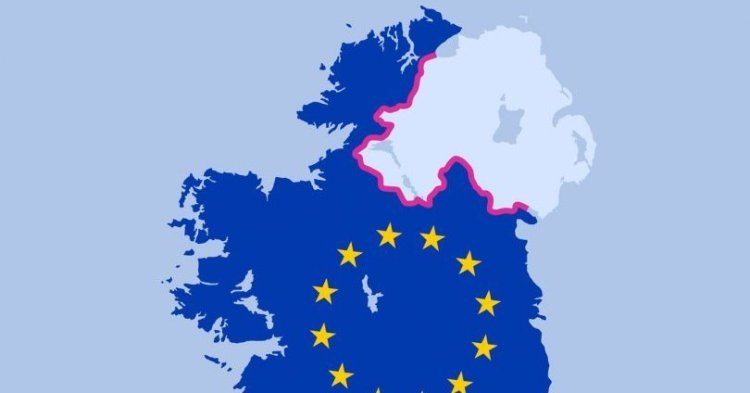The European Union may be perceived as primarily reactionary in nature. At moments of crisis, the political machinations of the EU institutions saturate our newspapers, television screens and Twitter feeds. At such times, the EU may be easily portrayed as a cold, unfeeling, impersonal monolith: indifferent to the fate of its citizens, unmoved by domestic or regional concerns.
Feelings of Isolation
This vision of the Union was one with which many Europeans became accustomed to over the past decade. The Eurozone debt crisis spurred by the global financial crisis of 2008 compelled a number of EU Member State governments to accept bailouts and the deeply unpopular strings which came attached. Two of the constituent elements of the Troika; namely the European Commission and the European Central Bank, assumed tacit responsibility as the face of the EU to many citizens of its Member States. Not least amongst this select group of crippled Member States was Ireland.
Rhetoric in Dublin during the period of bailout discussions was not dissimilar to that which became common during the Brexit debacle: the EU was the kidnapper, Ireland the hostage. There was protest abound of “sovereignty” and “control”, with the perception that Brussels and Berlin were punishing a debilitated member of their own family. The Irish, of course, were not alone in their dissatisfaction. Comparable demonstrations were on display in Athens, Madrid, and Lisbon.
Later, the migration crisis of 2015 left an enormous burden to be shouldered by Greece and Italy, while the Dublin III Regulation guaranteed that any unwilling Member State could return asylum seekers back to those two crippled Member States. The EU was unable to secure a consensus for burden-sharing, assisting with mere piecemeal efforts. Far too frequently, the small, the weak, the vulnerable Member States appear threatened or abandoned by the institutions that were designed to protect them.
Now, as the UK stutters its way towards a final departure date of October 31st, the EU finds itself in the midst of yet another existential crisis. Irish media is again consumed with footage and commentary of European Council summits and Commission press conferences. By its nature, damage control is always haphazard and rarely well orchestrated. Reactionary politics is not compassionate or diplomatic; collateral damage is likely and there is little consideration for the innocent bystander. Small and vulnerable Member States like Ireland may have feared that their interests would be sacrificed for the common prosperity of the Union.
Solidarity with Ireland Bearing Fruit
The Irish experience this time has proved to be overwhelmingly positive: the EU has demonstrated remarkable solidarity with Ireland since the UK’s decision to leave the European fold over three years ago. Ireland’s vulnerabilities in the face of a no-deal scenario are unique, not only due to the potential for economic fallout, but also because of the unacceptable risks threatening the invisible border on the island of Ireland.
In his 2018 State of the European Union address, Commission President Jean-Claude Junker promised that the EU would demonstrate “loyalty and solidarity” with Ireland, while defending “all the elements of the Good Friday Agreement”.
The UK has long predicted that the EU would capitulate on its uncompromising commitment to the Irish backstop, certain that the economic consequences of a no-deal Brexit would force the EU back to the negotiation table. However, a resolute determination to preserve the sanctity of the Single Market, coupled with an undivided loyalty to insulate Ireland from its inherent vulnerabilities in the face of a no-deal Brexit has ensured that the EU27 have remained united.



Follow the comments: |
|
